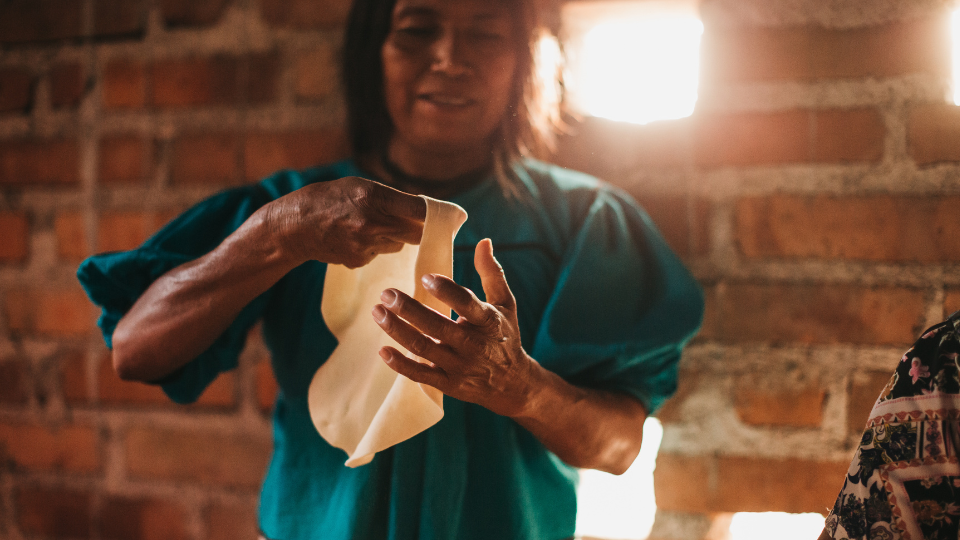Today’s post is written by Thom McMurray, a CAMA staff member serving in Latin America. This article was originally published in Alliance Life.
“I don’t understand it,” said one of my friends in Colombia when I asked him about poverty in his country. “We have so many resources here—natural resources, environmental resources, and people who want to work—but we never seem to be able to get ahead.”
Unfortunately, my friend is right. There are a variety of reasons for this problem. Some are “built in” to the country, and there’s little we can do to bring about change in those areas. We’ve discovered, however, that CAMA Services can address two of the biggest hurdles to overcoming poverty—education and partnership—by teaming up with local churches to reallocate resources and provide ongoing mentorship to the underprivileged and marginalized in our communities.
BEYOND RELIEF WORK
During the height of the pandemic, we provided necessities like food baskets and personal hygiene products, but I realized that when things got back to “normal,” even those who had weathered the pandemic were going to have a difficult time getting back to work. Our efforts had to go beyond relief work. The generous support of our donors allowed CAMA to partner with an entrepreneurship program at an Alliance church in Cali, Colombia. Our unique approach to leadership training helped us stand out. While many other entrepreneurship programs teach participants how to start a specific type of business (e.g., carpentry, handicrafts, baking, etc.), our project empowered participants to launch businesses that lined up with their own visions and talents.
Because of your generosity, our initiatives paved the way for restaurants, clothing projects, a welding business, a honey distributer, and many other creative business ventures. Using her connections as a nurse, Diana* started her own business selling medical supplies. Paola* learned how to use her cooking skills to launch a restaurant in a tourist area. Diana, Paola, and many other participants experienced the dignity that comes with meaningful work and the ability to provide for their families.

A DEEPER IMPACT
We didn’t want our program to only stand out for the success stories we generated in the business world, however. We also wanted to stand out for the deeper spiritual impact of our work. The keys to achieving this objective were the curriculum and one-on-one mentorship. The curriculum was clearly evangelical, and each course included a mixture of participants from inside and outside the church. The one-on-one mentorship that followed the curriculum was even better. For a year after completing the classes, each participant was paired with a Christian who had been successful in the marketplace. These believers served as mentors, praying and sharing their own wisdom with the current participants.
The impact of our mentors inspired me to incorporate a mentorship aspect into future projects whenever possible. When we began an agricultural development project in another part of the country, we intentionally introduced mentorship in the project at two levels. First, we made sure to include the voices of those who had experience growing and processing cocoa plants. Second, we brought in two Christian businessmen to coach the community in the sales process. This small project led to 60 families finding sustainable income—and even better, we saw 50 people come to Christ for the first time!
One of the key principles of sustainable, faith-based community development is that we don’t approach communities with a mentality of solving their problems. Instead, we pause until we understand where the Lord is moving. Then, as we join His work—fueled by those who come alongside us with their prayers and support—we assess and develop the resources at our disposal within the community. We’ve been blessed to work with a church network in Colombia that is eager to engage deeper in the community and take risks by working outside the walls of the church. This type of partnership is proving to make differences in lives today and for eternity.
A NEW OPPORTUNITY
Today, we’re in the early stages of launching a new entrepreneur project in partnership with the Colombian Alliance national church in a strategic city in the Amazon Rainforest. This project is different from the others because we’re not simply training. Instead, we’re starting a business. This community is drowning in plastic waste, and because it’s isolated in the jungle, building materials are expensive to import.
The problem of plastic waste has become a source of tension between the indigenous and nonindigenous groups in the area. We recognized that we could work together to create a factory that recycles plastic into building materials. Through the project, we can provide dignified work, add value to the community, and be a bridge of peace by cleaning the environment and restoring relationships between indigenous and nonindigenous peoples.
Early on, I was convinced of the importance of bringing mentorship into the project but wasn’t sure where it would fit. While I was sharing my vision with several close friends, they introduced me to others who had experience in this area and were eager to participate in the project. It was clear the Lord was directing people toward our new project, which will allow us to start with a solid foundation of Christian mentorship.
These initiatives would not be possible without the engagement and generosity of our Alliance family—so thank you! As we undertake new work for the Kingdom, we ask for your prayer and financial support. Pray that the recycling project complements the church plant well; that we are seen in the community as peacemakers; that we realize many opportunities to share the gospel in word and deed; and, finally, that we develop the next generation of workers in Colombia who will spread the gospel to the surrounding communities.
*Name changed